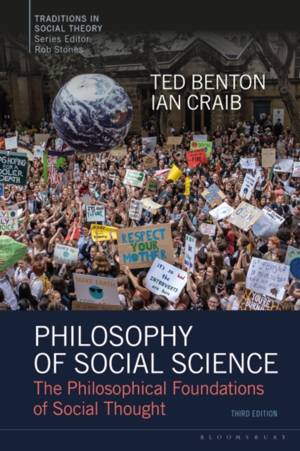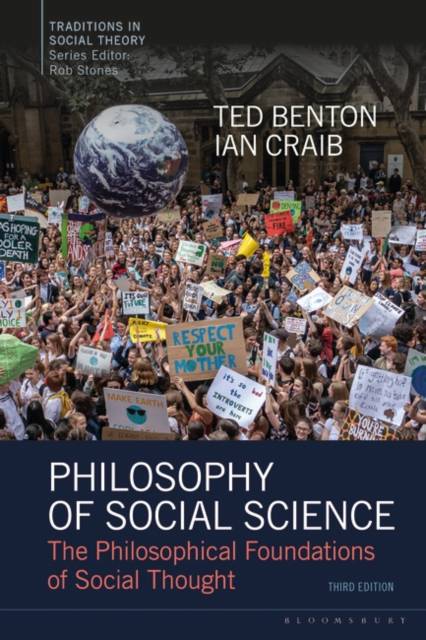
- Afhalen na 1 uur in een winkel met voorraad
- Gratis thuislevering in België vanaf € 30
- Ruim aanbod met 7 miljoen producten
- Afhalen na 1 uur in een winkel met voorraad
- Gratis thuislevering in België vanaf € 30
- Ruim aanbod met 7 miljoen producten
Zoeken
€ 254,45
+ 508 punten
Uitvoering
Omschrijving
Philosophers and social scientists share a common goal: to explore fundamental truths about ourselves and the nature of the world in which we live. But in what ways do these two distinct disciplines inform each other and arrive at these truths? This third revised edition of this highly regarded text directly responds to such issues as it introduces students to the philosophy of social science.
This classic text has been brought up to date with a new introduction and commentaries reflecting on the original chapters in the context of more recent developments. Two brand new chapters discuss critical social science and one of the most pressing issues concerning social scientists today - how we interrogate human society's complex relationship with nature and its impact on biodiversity and climate change.
The book:
- Clearly introduces the theoretical underpinnings of social science, assuming no prior knowledge
- Addresses critical issues relating to the nature of social science
- Interrogates the relationship between social science and natural science
- Encompasses traditional and contemporary perspectives
- Introduces and critiques a wide range of approaches, from empiricism and positivism to post structuralism and rationalism.
Written in an engaging and student-friendly style, the book introduces key ideas and concepts while raising questions and opening debates. A cornerstone text in the Traditions in Social Theory series, this book remains essential reading for all students of social theory and social science research.
This classic text has been brought up to date with a new introduction and commentaries reflecting on the original chapters in the context of more recent developments. Two brand new chapters discuss critical social science and one of the most pressing issues concerning social scientists today - how we interrogate human society's complex relationship with nature and its impact on biodiversity and climate change.
The book:
- Clearly introduces the theoretical underpinnings of social science, assuming no prior knowledge
- Addresses critical issues relating to the nature of social science
- Interrogates the relationship between social science and natural science
- Encompasses traditional and contemporary perspectives
- Introduces and critiques a wide range of approaches, from empiricism and positivism to post structuralism and rationalism.
Written in an engaging and student-friendly style, the book introduces key ideas and concepts while raising questions and opening debates. A cornerstone text in the Traditions in Social Theory series, this book remains essential reading for all students of social theory and social science research.
Specificaties
Betrokkenen
- Auteur(s):
- Uitgeverij:
Inhoud
- Aantal bladzijden:
- 328
- Taal:
- Engels
- Reeks:
Eigenschappen
- Productcode (EAN):
- 9781350329089
- Verschijningsdatum:
- 9/03/2023
- Uitvoering:
- Hardcover
- Formaat:
- Genaaid
- Afmetingen:
- 156 mm x 234 mm
- Gewicht:
- 630 g

Alleen bij Standaard Boekhandel
+ 508 punten op je klantenkaart van Standaard Boekhandel
Beoordelingen
We publiceren alleen reviews die voldoen aan de voorwaarden voor reviews. Bekijk onze voorwaarden voor reviews.








